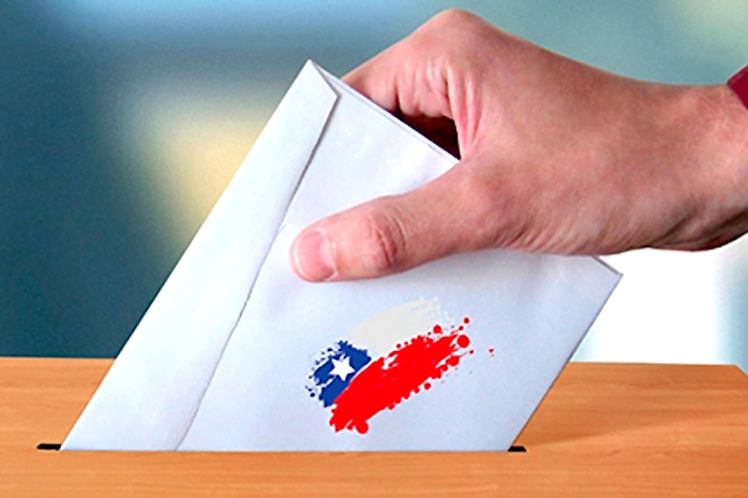
Image: Internet.
By Guillermo Alvarado
The second and final round of Chile's presidential elections will be held this Sunday, December 19, in a very tense atmosphere, not only because of the diametrically opposed positions of the two candidates, but also because neither of them is the favorite and a very close result is predicted.
For the first time after the dictatorship of Augusto Pinochet, from 1973 to 1990, two radically different models, represented by Gabriel Boric, of the coalition Apruebo Dignidad, and José Antonio Kast of the extreme right-wing alliance Pacto Social Cristiano, are competing for the country's first magistracy.
In the first round on November 21, Kast came in first place, two points ahead of his opponent, but since then polls of voting intentions have been leaning towards Boric, although without a decisive advantage.
The campaign has been weighed down by the dissemination of false news, rumors, half-truths and unfounded disqualifications, promoted in social networks mainly by the ultra-right and its allies inside and outside Chile.
If any more element was needed to make the climate even more tense, in the last hours this political sector started to spread the version that the result could be defined, not at the voting tables, but in the electoral courts.
Without mentioning the word fraud, the same maneuver applied by the former president of the United States, Donald Trump, who before the elections planted in the minds of a part of the population the idea that the scrutiny would not be legitimate and that it would be necessary to resort to justice, is being put into practice.
"It is textbook what the ultra-right is doing in Chile, you see: it is exactly the same as Trump. They are beginning to question the eventual results," said Gabriel Boric in response to the statements of Kast and some of his allies.
Also Andrés Tagle, the president of the Electoral Service, Servel, came out on the situation and said that there have been too many false news and that to talk about an eventual fraud is to ignore the legislation on the subject of the scrutiny of the votes deposited in the ballot boxes.
In addition to the data provided by Servel on the night of the elections, which are only informative in nature, the following day the scrutinizing colleges are installed, which check again table by table and, finally, the Electoral Tribunal makes a third count and gives the definitive result.
The importance of what is at stake this Sunday means that all eyes, inside and outside Chile, are focused on what will be the model of government that will emerge for the coming years, which will undoubtedly have repercussions and influence on our continent.

